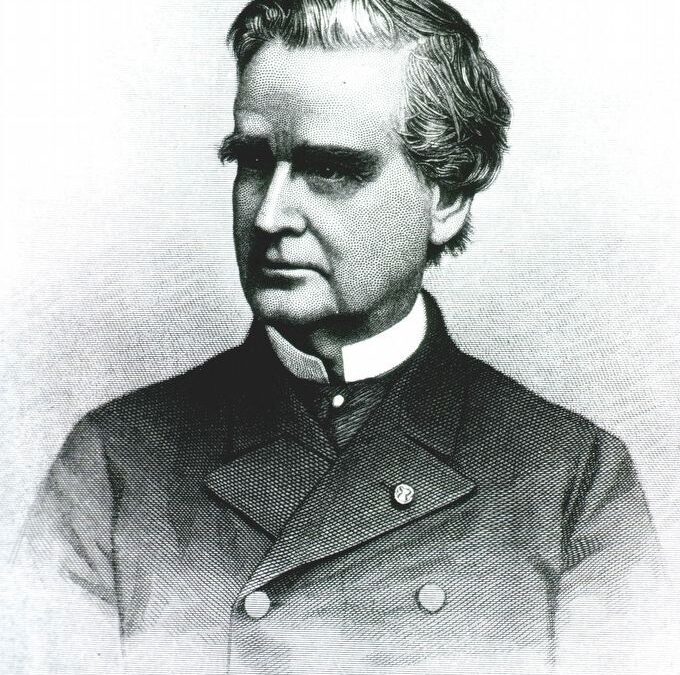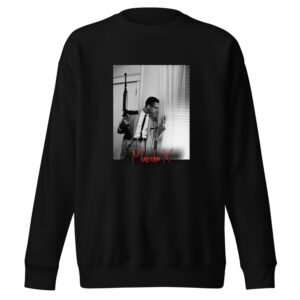Over the years, James Marion Sims has been widely celebrated as the « Father of Gynecology » for his significant contributions to the field of women’s health. However, his legacy is shrouded in controversy due to his unethical medical experiments on enslaved women. In this article, we will explore into the complex and nuanced history of James Marion Sims, exploring both his medical innovations and the dark shadows that tarnish his reputation.

The Life and Times of James Marion Sims
Early Years and Education
Years before he became known as the « Father of Gynecology, » James Marion Sims was born on January 25, 1813, in Lancaster County, South Carolina. Sims grew up in a modest farming family, and despite facing financial struggles, he demonstrated a keen interest in medicine from a young age. His passion for healing and helping others paved the way for his future career in the medical field.
Medical Career and Innovations
Years later, Sims attended South Carolina College and then trained as a physician under the guidance of local doctors. In 1835, he moved to Montgomery, Alabama, where he established a successful medical practice. Sims soon gained recognition for his expertise in treating various ailments and his innovative surgical techniques.
Understanding the significant challenges faced by women in the 19th century, especially those suffering from childbirth injuries, Sims dedicated his work to finding solutions. Through meticulous experimentation and surgical procedures, he developed groundbreaking techniques in gynecology that revolutionized the field of women’s health.
The Controversy Surrounding Sims’ Practices
The Use of Enslaved Women for Medical Experimentation
If there is one aspect of James Marion Sims’ legacy that has sparked intense debate and outrage, it is his use of enslaved women for his medical experiments. Sims conducted numerous surgeries on enslaved African American women without their consent, using them to perfect his surgical techniques for repairing vesicovaginal fistulas. These women endured painful procedures without anesthesia, as Sims believed that African Americans did not experience pain in the same way as white patients.
The Ethics of Surgical Innovation
Surgical innovation is often a complex and ethically fraught area of medicine, and Sims’ practices highlight this issue in a stark manner. While Sims’ contributions to the field of gynecology are significant, the means by which he achieved them raise important questions about medical ethics and the treatment of vulnerable populations. Critics argue that Sims’ disregard for the well-being and autonomy of the enslaved women involved in his experiments casts a shadow over his accomplishments and underscores the need for ethical guidelines in medical research.
It is crucial for medical professionals and researchers to uphold the highest standards of ethical conduct, prioritizing the well-being and rights of all individuals involved in medical experimentation. The case of James Marion Sims serves as a stark reminder of the potential harms that can arise when ethical considerations are not given due weight in the pursuit of scientific advancement.
Sims’ Contributions to Gynecology
The Development of the Vesico-Vaginal Fistula Repair
One of James Marion Sims’ pioneering contributions to gynecology was his development of a surgical technique to repair vesico-vaginal fistulas. These devastating injuries, often caused by prolonged obstructed labor, left women incontinent and facing social isolation. Sims, through meticulous trial and error, refined a groundbreaking method that involved the careful suturing of the vesico-vaginal wall. His work in this area marked a significant advancement in the field of gynecological surgery and brought hope to countless women suffering from this debilitating condition.
Improvements in Surgical Techniques and Instruments
Gynecology was revolutionized by Sims’ relentless pursuit of perfection in surgical techniques and instruments. He introduced new tools and methods that enhanced surgical precision and significantly improved patient outcomes. Sims’ innovative approaches not only elevated the standards of gynecological surgery but also laid the foundation for future advancements in the field. His dedication to refining surgical practices has left an indelible mark on the history of gynecology.
With a keen eye for detail and a commitment to excellence, Sims revolutionized the field of gynecology by introducing innovative surgical techniques and instruments. His contributions not only transformed the way gynecological surgeries were performed but also raised the overall quality of care for women in need of such procedures. Sims’ legacy continues to inspire advancements in modern gynecological practices, underscoring his enduring impact on the field.
The Dark Side of Sims’ Legacy
Once again, we are confronted with the troubling legacy of James Marion Sims, often hailed as the « Father of Gynecology. » While Sims’ contributions to the field of medicine are undeniable, his methods and practices have come under intense scrutiny in recent years.
The Exploitation of Enslaved Women’s Bodies
Bodies of enslaved women were at the center of Sims’ medical experiments. Sims conducted numerous surgeries on enslaved women without their consent and without the use of anesthesia, as he believed Black people did not experience pain in the same way as white people. This inhumane treatment of enslaved women raises serious ethical questions about Sims’ methods and the price that was paid for his advancements in gynecology.
The Erasure of Black Women’s Contributions to Medicine
Erasure of Black women’s contributions to medicine is a dark aspect of Sims’ legacy. Although Sims is often credited with major advancements in gynecology, it is crucial to acknowledge the significant contributions made by the enslaved Black women who were subjected to his experiments. Their resilience, strength, and knowledge were crucial to Sims’ work, yet their names and stories are frequently left out of the history books.
Medicine owes a debt to these women, whose suffering and sacrifices paved the way for modern gynecology. It is crucial to recognize and honor their contributions, ensuring that they are not forgotten or overshadowed by Sims’ controversial legacy.
The Modern Reckoning with Sims’ Legacy
Reevaluating the Heroism of James Marion Sims
Now, as we look back on the life and work of James Marion Sims, once hailed as the « father of gynecology, » we are faced with a complex legacy that demands reevaluation. While Sims made significant contributions to the field of medicine, including groundbreaking surgical techniques that have saved countless lives, we cannot ignore the darker aspects of his methods and practices.
Marion Sims’ controversial experiments on enslaved women without their consent have sparked a long-overdue conversation about medical ethics, consent, and the exploitation of marginalized communities in the pursuit of scientific advancement. It is necessary that we critically examine Sims’ legacy and consider the full impact of his actions on the women he experimented on.
Confronting the Racial and Gendered Power Dynamics of Medicine
Gendered power imbalances and racial injustices have long been present in the field of medicine, and Sims’ legacy serves as a stark reminder of the deeply ingrained biases that continue to shape healthcare practices today. The exploitation of Black enslaved women by Sims highlights the intersectionality of race and gender in the history of medicine, shedding light on how women of color have often been marginalized and mistreated within medical research and practice.
Power dynamics in medicine have historically favored white male practitioners, allowing for the abuse of vulnerable populations and perpetuating disparities in healthcare access and treatment. By acknowledging and confronting these systemic inequalities, we can work towards creating a more equitable and just healthcare system for all individuals, regardless of race or gender.
The Impact of Sims’ Legacy on Contemporary Medicine
The Ongoing Disparities in Women’s Healthcare
For contemporary medicine, the legacy of James Marion Sims has brought attention to the ongoing disparities in women’s healthcare. Sims’ unethical experimentation on enslaved women highlights a long history of marginalized groups bearing the burden of medical progress. These disparities continue to persist, with women of color and those from low-income backgrounds facing obstacles in accessing quality healthcare and being subjected to unequal treatment within the medical system.
The Importance of Inclusive and Ethical Medical Practices
For contemporary medicine, the legacy of James Marion Sims underscores the importance of inclusive and ethical medical practices. It serves as a reminder of the need for physicians to prioritize patient well-being, informed consent, and equality in healthcare delivery. By acknowledging past wrongdoings and actively working towards a more inclusive and ethical medical environment, healthcare professionals can strive to honor the dignity and rights of all individuals under their care.
Medicine: Ethical medical practices not only uphold the principles of beneficence and non-maleficence but also promote trust between patients and healthcare providers. In the wake of Sims’ controversial legacy, it is crucial for the medical community to engage in ongoing conversations about historical injustices, implement policies that prioritize patient autonomy and diversity, and commit to fostering a healthcare system that serves all individuals equitably.
Conclusion
With this in mind, the controversial legacy of James Marion Sims, often hailed as the father of modern gynecology, raises important ethical questions that continue to be debated today. While Sims made significant advancements in the field of gynecology, his unethical experimentation on enslaved women has cast a shadow over his achievements and sparked discussions about medical ethics, consent, and the treatment of marginalized populations.
As we grapple with the complexities of Sims’s legacy, it is crucial to approach the discussion with nuance and sensitivity, understanding the harm caused by his actions while also acknowledging the advancements he made in the field of medicine. By examining Sims’s controversial history, we can learn valuable lessons about the importance of ethical conduct in healthcare and the need to prioritize the well-being and agency of all patients, particularly those who have historically been marginalized and exploited.
FAQ
Q: Who was James Marion Sims?
A: James Marion Sims was a 19th-century American physician who is often referred to as the « Father of Gynecology. » He is best known for developing surgical techniques to treat obstetrical fistulas, a painful condition that can occur during childbirth.
Q: What is the controversy surrounding James Marion Sims?
A: Despite his medical advancements, Sims conducted experiments on enslaved women without their consent or anesthesia, leading to ethical debates about his legacy and the exploitation of marginalized populations for medical research.
Q: What are some of James Marion Sims’ contributions to the field of gynecology?
A: Sims pioneered surgical techniques to repair obstetrical fistulas, established the first hospital for women in New York City, and made significant advancements in the treatment of gynecological conditions during his career.
Q: How has the legacy of James Marion Sims been viewed in modern times?
A: In modern times, there has been a reassessment of Sims’ legacy, with many calling attention to the unethical nature of his experiments on enslaved women and advocating for a more nuanced understanding of his contributions to the field of gynecology.
Q: What lessons can we learn from the controversial legacy of James Marion Sims?
A: The legacy of James Marion Sims serves as a reminder of the importance of ethical considerations in medical research and the need to critically examine the actions of historical figures, even those who made significant contributions to their field.
See also our article : 100 Black inventors who made history










